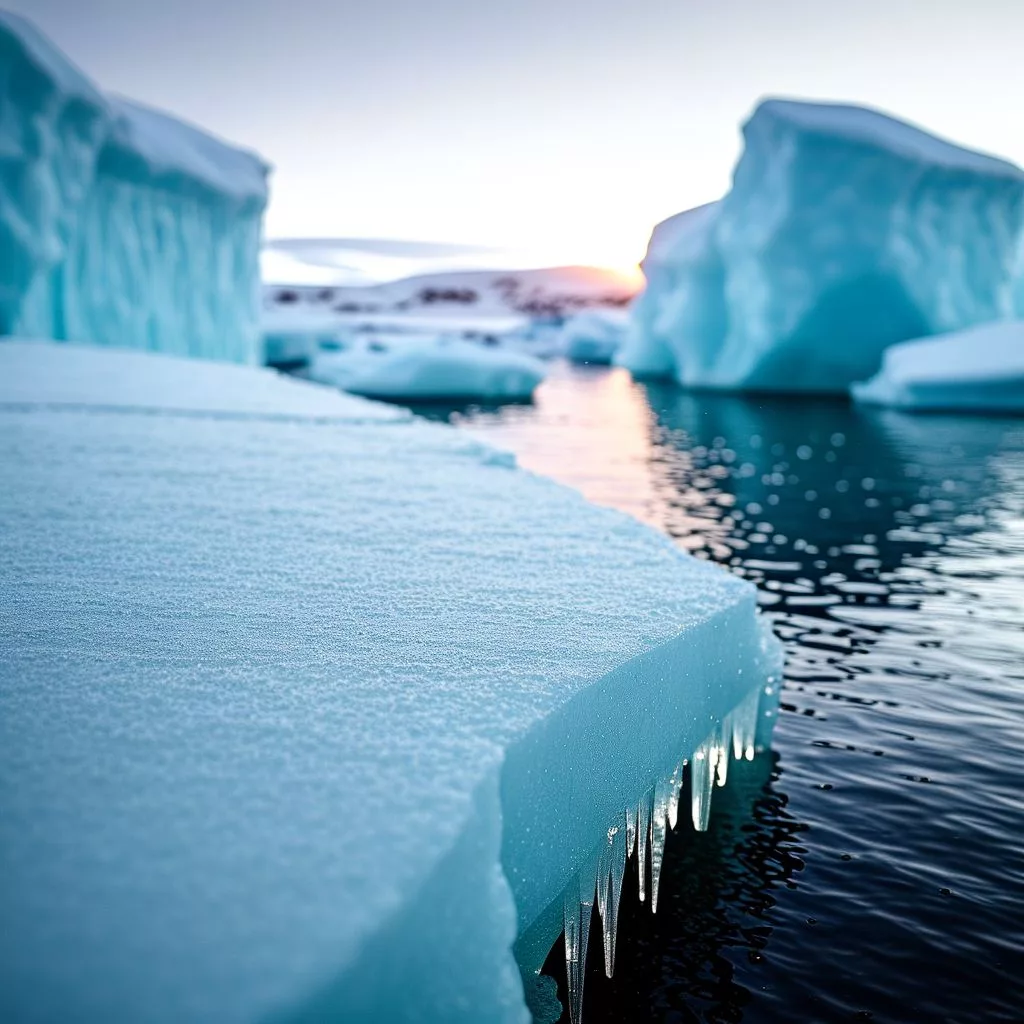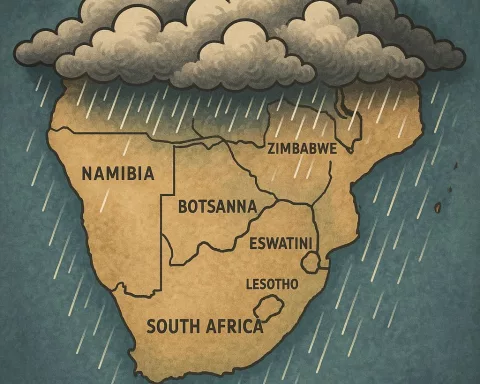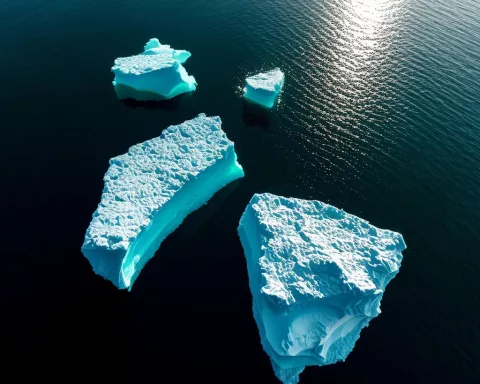The SA Agulhas II is a crucial ship for studying climate change, sailing from Antarctica to Africa to collect important information about the ocean and its ecosystems. This floating laboratory helps scientists understand how rising ocean temperatures affect weather patterns and coastal communities in South Africa. Its research highlights the urgent need to protect our planet, showing that the ocean’s health is key to our survival. As it prepares for its next journey, the SA Agulhas II remains a symbol of hope and knowledge in the fight against climate change.
What is the significance of the SA Agulhas II in climate research?
The SA Agulhas II is vital for climate research as it gathers critical data on oceanic and coastal ecosystems, reflecting Earth’s health and the impacts of climate change. Its findings help monitor ocean temperature changes, inform policy decisions, and guide efforts to mitigate climate-related challenges.
A Floating Laboratory’s Mission
The renowned South African research vessel, SA Agulhas II, recently returned to Cape Town, concluding its yearly expedition to the SA National Antarctic Expedition (SANAE) IV base. This journey yielded crucial data that sheds light on the shifting dynamics of Earth’s climate. Since its launch in 2012, the SA Agulhas II has functioned as a pivotal research platform, exploring oceanic and coastal ecosystems from the icy reaches of Antarctica to the warm shores of Africa. The findings of these missions underscore the urgent need for understanding and action in response to the planet’s evolving climate.
Ashley Johnson, the acting chief director of ocean and coast research at the Department of Forestry, Fisheries, and the Environment (DFFE), expressed his observations following the vessel’s latest mission. During a public open day in East London, he discussed the concerning rise in ocean temperatures at the equator and its implications for South Africa. The Agulhas Current, a significant ocean current skirting the nation’s coastline, now transports warmer waters further south than before. This change could drive tropical cyclones towards densely populated areas, risking severe impacts on infrastructure and communities in regions like Richards Bay and Durban.
The ramifications of these studies go beyond immediate regional effects. Johnson points out that the SA Agulhas II, along with research facilities at SANAE IV, Marion Island, and Gough Island, plays a critical role in unraveling the complexities of oceanic systems. These mechanisms affect not only marine life but also have far-reaching consequences for terrestrial climates. The DFFE’s Oceans and Coasts Annual Science Report indicates that human activities like pollution and overfishing, coupled with greenhouse gas emissions, are accelerating ocean acidification and climate change, posing severe threats to both marine ecosystems and human survival.
Understanding the Ocean’s Role
The importance of sustained observation in comprehending the ocean’s impact on climate dynamics cannot be overstated, as emphasized by Johnson. The Southern Ocean, situated between Africa and Antarctica, is often referred to as the “pulse of the world” due to its ability to reflect the planet’s health. Since the 1960s, the DFFE has conducted Antarctic research, providing essential data to monitor the rapid pace of climate change. Without this information, there is a danger of misinterpreting the ocean’s influence on global warming, which could impede efforts to mitigate negative outcomes.
The visibility of melting polar ice serves as a stark reminder of climate change’s tangible effects. South Africa, like other African nations, cannot solely rely on research from northern regions. Climate change’s impact manifests differently across the globe, and a global temperature increase of 1.5°C does not affect all regions equally. For instance, the Arctic is warming at a rate up to three times that of the global average, which disrupts global weather patterns. If the Gulf Stream weakens further, northern Europe might endure harsher winters despite the overall rise in global temperatures.
Melting polar ice also contributes to rising sea levels, presenting another formidable challenge. The complete melting of Greenland’s ice could elevate average sea levels by half a meter, while Antarctic ice melt could cause an alarming 60-meter rise. Such changes would exacerbate storm surges, posing threats to coastal infrastructure crucial to South Africa’s economy. Previously rare, these surges are becoming more frequent and cause widespread destruction.
The Economic Implications of Marine Research
Nomfundo Tshabalala, Director-General of the DFFE, highlighted the significance of marine research during the SA Agulhas II’s journey from East London to Cape Town. Although substantial land-based data exists, marine research remains limited, primarily due to funding challenges. Operating the SA Agulhas II incurs an annual cost of approximately R140 million, prompting the DFFE to seek alternative funding models alongside private partnerships. Additionally, the Africana, another essential research vessel, urgently requires maintenance to continue its fisheries surveys.
Tshabalala emphasized the necessity of balancing conservation with development. While marine protection remains a DFFE priority, sustainable growth is equally important. Comprehensive scientific data is essential to achieve this equilibrium, ensuring conservation efforts do not impede economic progress.
As the SA Agulhas II sets its sights on its next expedition to Marion Island, it stands as a beacon of exploration, science, and stewardship. In a time of unprecedented climate uncertainty, the ship’s expeditions provide indispensable insights into the ocean’s mysteries, guiding us through the challenges of a warming planet. The data gathered from these voyages not only enriches scientific understanding but also informs crucial policy decisions aimed at protecting the future of our planet.
Sailing into the Future
The SA Agulhas II continues to symbolize the intersection of discovery and responsibility, pivotal in an era dominated by climate change. Its journeys deliver vital knowledge, contributing to a deeper understanding of the ocean’s role in shaping global climates. This information is not just academic; it has practical implications for crafting effective strategies to confront the ecological challenges presented by a warming world.
Through its missions, the SA Agulhas II affirms that the ocean is integral to our planet’s health and well-being. It serves as a reminder that the actions we take today will determine the legacy we leave for future generations. As policymakers and scientists work together to address these issues, the insights gained from the SA Agulhas II’s expeditions will be crucial in steering the course towards a sustainable future for all.
FAQ
What is the SA Agulhas II and its role in climate research?
The SA Agulhas II is a research vessel that plays a crucial role in studying climate change by collecting essential data about oceanic and coastal ecosystems. This ship helps scientists understand how rising ocean temperatures impact weather patterns and coastal communities, particularly in South Africa.
Why are the findings from the SA Agulhas II important?
The findings from the SA Agulhas II provide vital insights into the changing dynamics of Earth’s climate. They inform policy decisions and guide efforts to mitigate climate-related challenges, highlighting the urgent need to protect our planet and emphasizing the ocean’s health as key to our survival.
How does the research conducted by the SA Agulhas II affect South Africa?
Research from the SA Agulhas II indicates that rising ocean temperatures may lead to tropical cyclones affecting densely populated areas in South Africa, such as Richards Bay and Durban. This poses significant risks to infrastructure and communities, making the research essential for disaster preparedness and management.
What are the economic implications of marine research highlighted by the SA Agulhas II?
The economic implications include the need for balanced conservation and development strategies. While marine research is critical for sustainable growth, funding limitations pose challenges. The DFFE is exploring alternative funding models to maintain the research vessel and support ongoing studies to ensure marine ecosystems are preserved without hindering economic progress.
How does the SA Agulhas II contribute to understanding global climate dynamics?
The SA Agulhas II contributes to our understanding of global climate dynamics by monitoring oceanic systems that affect both marine and terrestrial climates. As the Southern Ocean reflects the planet’s health, sustained observations from the SA Agulhas II help scientists comprehend the broader impacts of climate change and the complexities involved.
What future missions does the SA Agulhas II have planned?
The SA Agulhas II is preparing for its next expedition to Marion Island. These missions are vital in exploring oceanic mysteries and gathering data that informs both scientific understanding and policy decisions aimed at addressing the challenges of a warming planet, ensuring a sustainable future for generations to come.












